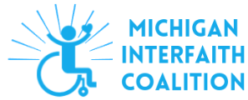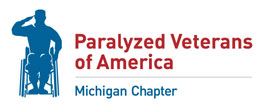WAYS TO HELP RIGHT NOW
TELL THEIR STORY
Get to know some of the 18,000 survivors who are hurting in your community through support groups, ministries, and social media. Learn their story and share it with your congregation, other faith leaders, and friends. Be their voice.
CONTACT LAWMAKERS
Legislators need to hear from constituents to know what issues are important. Attend a Coffee & Meet event, request a phone call, write snail mail. Be their advocate.
PRAY
Many of these survivors are suffering physically, but also mentally and spiritually. Many feel betrayed, abandoned, and hopeless. Their families are under tremendous financial stress, with many having to sell their homes to pay for care. Pray for them, for their families, and for the legislators who have the power to end this crisis.

“Our lives begin to end the day we become silent about things that matter.”
– Martin Luther King, Jr.
Other Ways To Help
- Stay informed about the auto no-fault revisions – go to this website often or subscribe to our RSS feed.
- Contact caregivers and nurses in your organization and ask them to help these survivors. Many families are spending their lifetime savings to pay for 24/7 care, others need just a few hours of relief. Some agencies are only able to pay minimum wage. It will take more heart than money to provide relief to survivors and families.
- Help us build our Resources for Families section by contacting essential care companies and asking if they are still taking new patients with auto insurance, without pre-conditions such as “on a case by case basis” or with “an insurance contract.”
The greatest need right now is for:- Home health aides and private duty nursing companies
- Wheelchair-accessible transportation companies
- Home therapy (PT / OT / Speech / Massage / Social Work)
- Residential programs and group homes for Traumatic Brain Injury and Spinal Cord Injury
- Assist survivors with filing DIFS complaints when they are not receiving care and other insurance benefits. The process is complex and times out in 20 minutes, which makes it extremely difficult for someone without full use of their fingers or with limited mental function to complete.
- Start a support group for survivors and families. Connect them to mental health resources locally.
- Help us write stories about survivors, their families and providers to show legislators and Michigan government officials how the auto reform is hurting people. Photography, story telling, translation and web design help are always welcome. Help connect survivors to news media and storytellers such as Silent Crash Podcast.
- Invite other religious leaders and spiritual organizations and individuals to join the Coalition.
- Contact us for other ways to volunteer or to connect you with survivors in need.
- Pray, pray, pray! Pray for survivors, families and all who need the auto no-fault revisions to be fixed. Pray for the legislators and Michigan government officials who can fix it.




